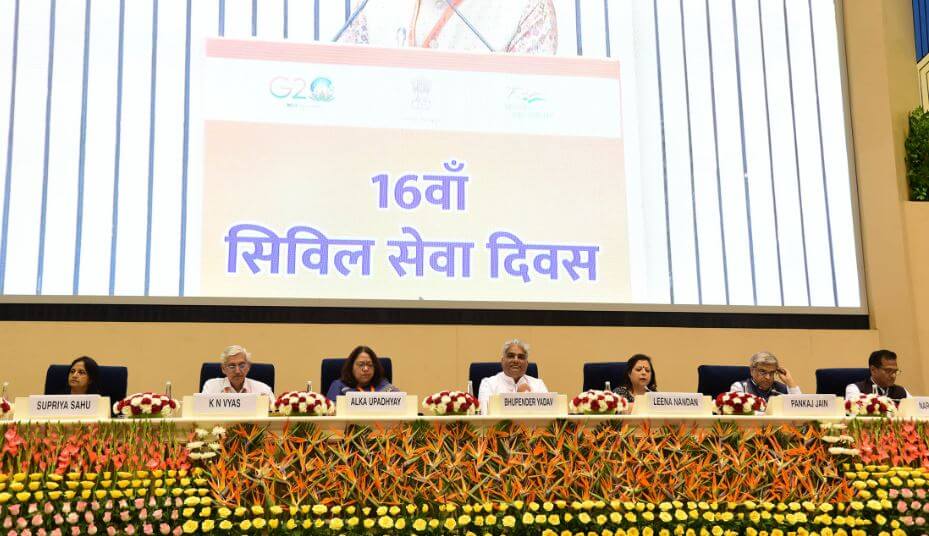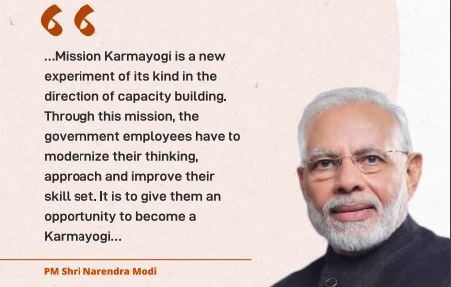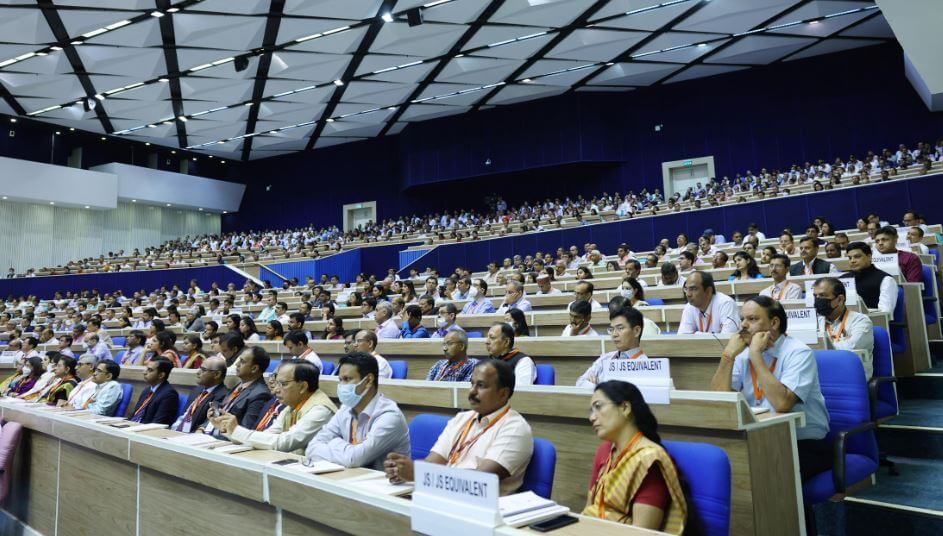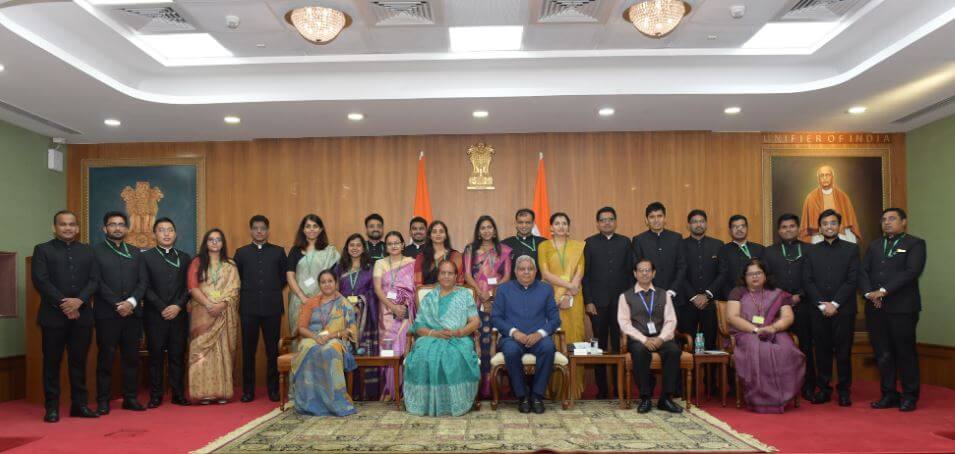
Civil service is not just a job, it’s a responsibility to serve the greater good and uphold the values of fairness, integrity, and justice for all
Mission Karmayogi was announced to prepare civil servants for the future. This is indeed a good move. Its aim was to impart necessary expertise to the civil servant and equip them for the challenges during their tenure. However, the key question is whether expertise is the real problem.

In fact, expertise can be outsourced but attitude can’t. Are we selecting the persons with the right attitude to man various positions that are so critical in governance? Are we training them appropriately for this purpose? Are we managing them properly?
Unfortunately, there has so far been no concerted or sustained effort at managing the senior civil service in a comprehensive manner. The steps have been ad-hoc in nature. Lateral recruitment is also one such effort. What really needs to be done is to look at the manner in which recruitment takes place, the in-service training, transfers, assessment of officers, incentives, and disincentives by way of promotions and selections to critical posts. However, before taking a call on these aspects, it would be essential to determine what is required in an officer who mans the senior civil service.

Almost all the IAS officers occupy leadership positions right from the beginning of their careers be it a Sub Divisional Magistrate, a District Magistrate or the Head of a Department. Even in the Secretariat jobs, each officer has to lead a team. Hence, the objective should be to select such persons who have leadership qualities or have the potential to become leaders and are worthy of respect. The training should also centre on honing leadership skills. Perhaps this is not what is being done now.
The selection by the UPSC is above board but the entrance exams primarily select academically brilliant individuals by testing their written communication skills, some analytical skills and general awareness. What it tests is the examinees’ capability to crack the exam and various coaching institutes assist them in doing so. A leader requires much more than that. He has to be able to build a team and carry it along with him by motivating those working with him. This entails setting examples, even at the cost of a few personal sacrifices. He has to excel in communication and in soft skills beyond the written one. He has to be ethical in his behaviour and retain a positive attitude under pressure. None of these qualities are tested at the time of recruitment. We have tools today to assess these, tools that are being used in the private sector and elsewhere in the world. Shouldn’t these tools be used while recruiting officers?

The maximum age of entry into the civil service has gone up. Hence, to mould them into leaders becomes extremely difficult. They are already set in their ways like hard-boiled eggs. Training assumes an important aspect of moulding these entrants into accomplished leaders. The maximum age of entry has to be brought down to 26 as was the case a few decades ago. The training itself has to be focussed on imparting the appropriate skills and attitude that would enable the officer to evolve as a leader. Thus, more than individual activities, the emphasis has to be placed on group activities and projects. It is during the training that the ethos and the purpose of the service need to be drilled into the rookies. A case study-based methodology needs to be adopted to drive home the points.
The officers have the knowledge and they are capable of acquiring more of it. What is required is the transformation of the attitude of an officer, the necessity and utility of ethical behaviour. Periodic up-gradation of skills and learning from each other should be the focus of in-service training. This is imperative in the context of a fast-changing world both in terms of technology and management.

There are a large number of officers who have done well in their careers. Such officers can be asked to mentor officers who enter the service for the first few years. These initial years in the service are critical in moulding officers. Hence, they require a lot of support and guidance. The young officer needs to be nurtured not left to a variety of ‘wolves’ that push this officer to become one himself. The existing ethos does not encourage a culture of support and guidance. An institutional arrangement should be made in this regard.
Also Read: Why should I join the IAS?
The inclination and aptitude of the officer need to be closely monitored to determine his postings and assignments. And, once assigned a task, he should be left to deliver. Frequent transfers can be extremely debilitating but seem to have become the order of the day in a number of states. If an officer is transferred frequently, not only is he unable to deliver, but responsibility cannot be fixed for his inability to perform. This is one reason that has led to the politicisation of the bureaucracy. The politician is happy with it but governance suffers. Some states have experimented with the Civil Services Board but it hasn’t really worked. This will have to be given serious thought. Postings should be based on integrity and competence and not on allegiance. This can easily be done for critical posts, to begin with. An agency like the UPSC can be assigned to prepare a panel from which the government can select an officer.

The Annual Confidential Reports (ACRs) were an instrument through which officers were evaluated annually and their promotions were based on these ACRs. However, consequent to the Supreme Court order, these ACRs have ceased to be confidential as they have to be communicated to the concerned officers. This has impacted the efficacy of ACRs as no reporting officer wants to get embroiled with an officer dissatisfied with a grade. The 360-degree evaluation in vogue for the past few years is even worse as it is opaque and has had a demoralising effect on the civil service. Unlike the private sector, from where this concept has been borrowed, the one in practice in the government is a superficial one where assessment for empanelment is made on the basis of phone calls to peer group officers. No discussion is held with the officer who is being assessed and he is not even informed about the reason for not being empanelled.

Finally, a lot depends upon the nature of signalling by the government. Who is the government rewarding? Whether the performers and those with integrity are seen as ‘victors’ or those who shamelessly display their ‘allegiance’.
There is a need to look at the management of the Civil Service in a comprehensive manner. Bureaucracies have not withered away anywhere in the world and there is no likelihood of them withering away in the near future. Civil servants will continue to be tools for ‘making things happen’. Hence, the need for reform. The sooner it is done, the better would it be.

